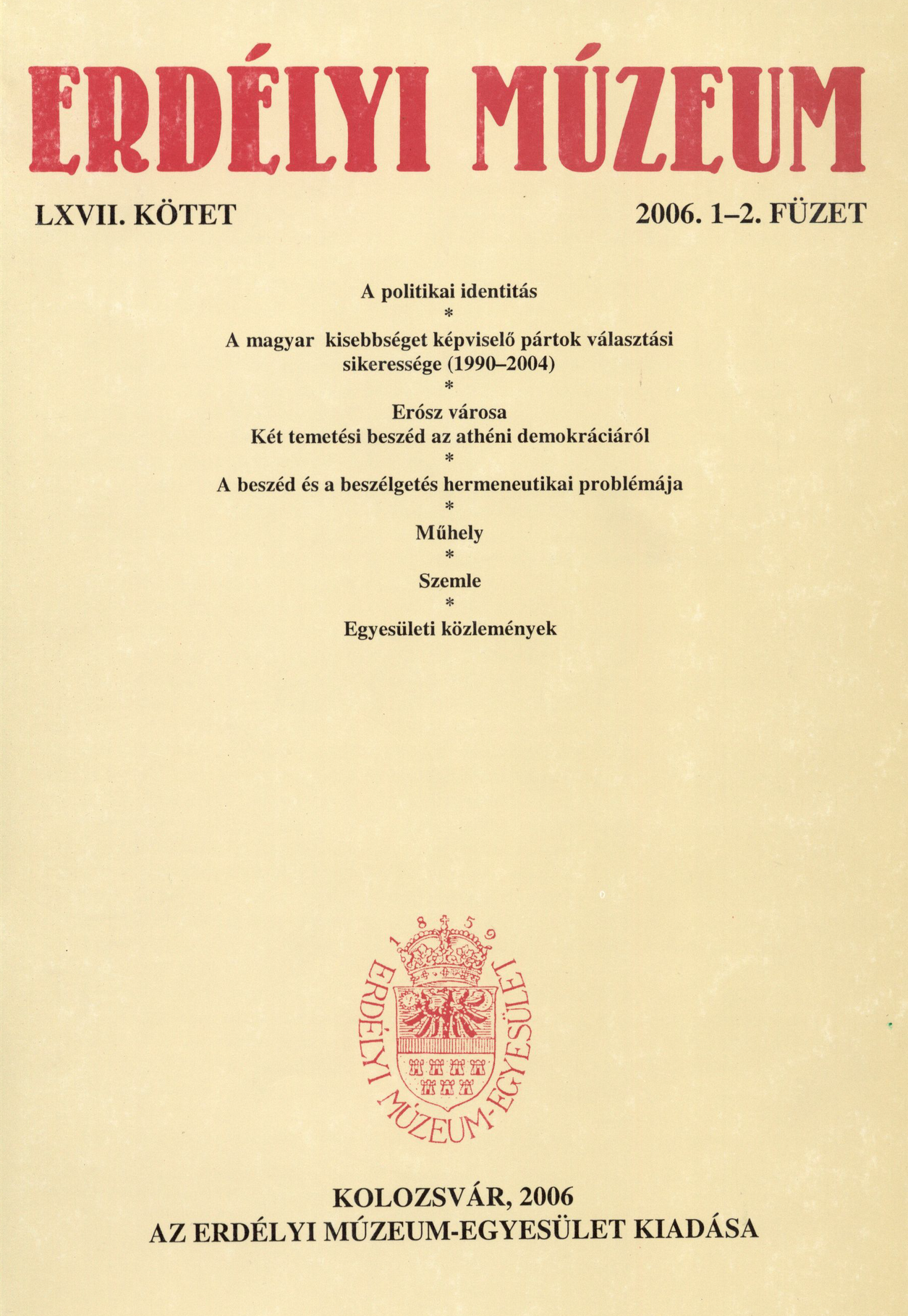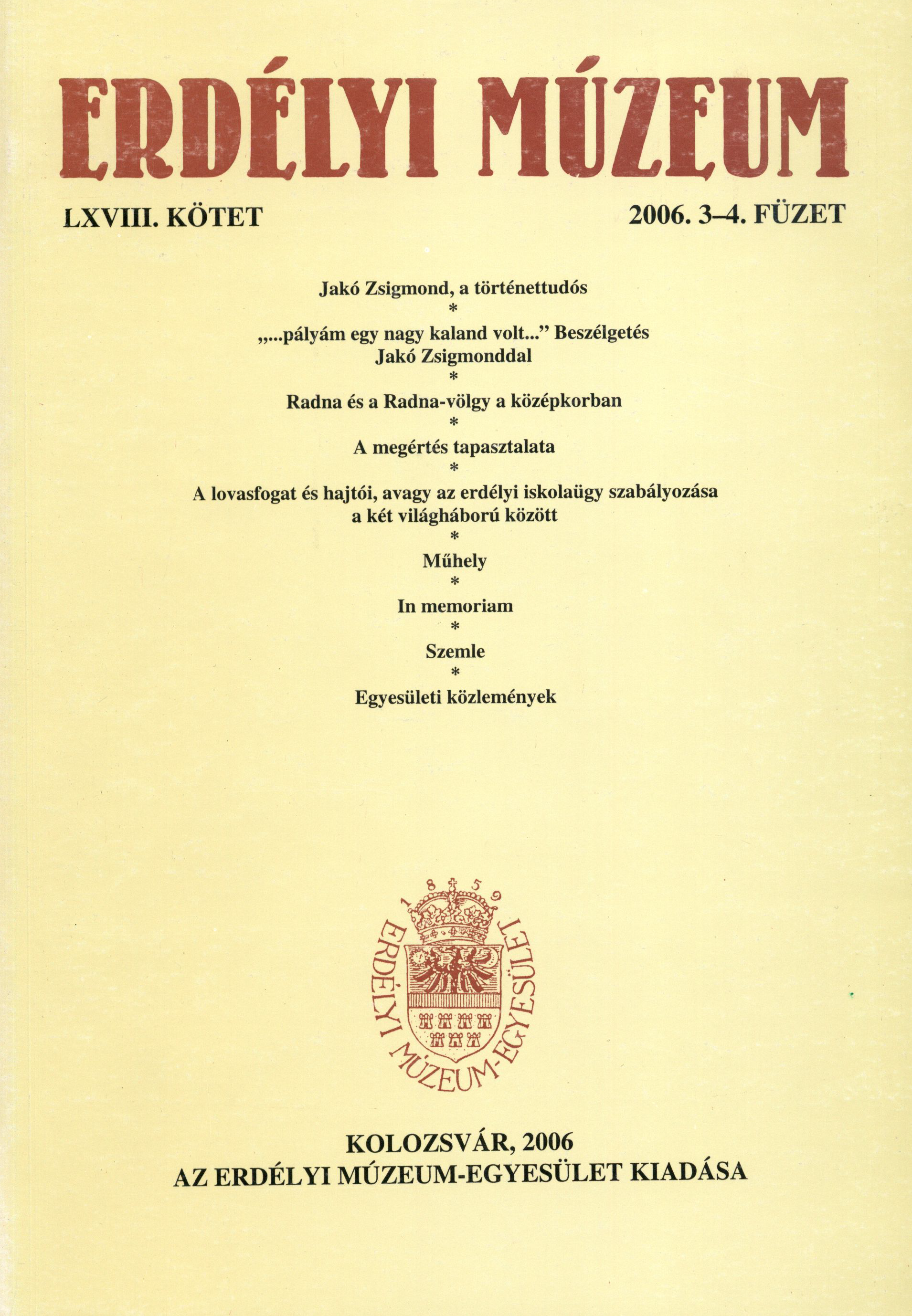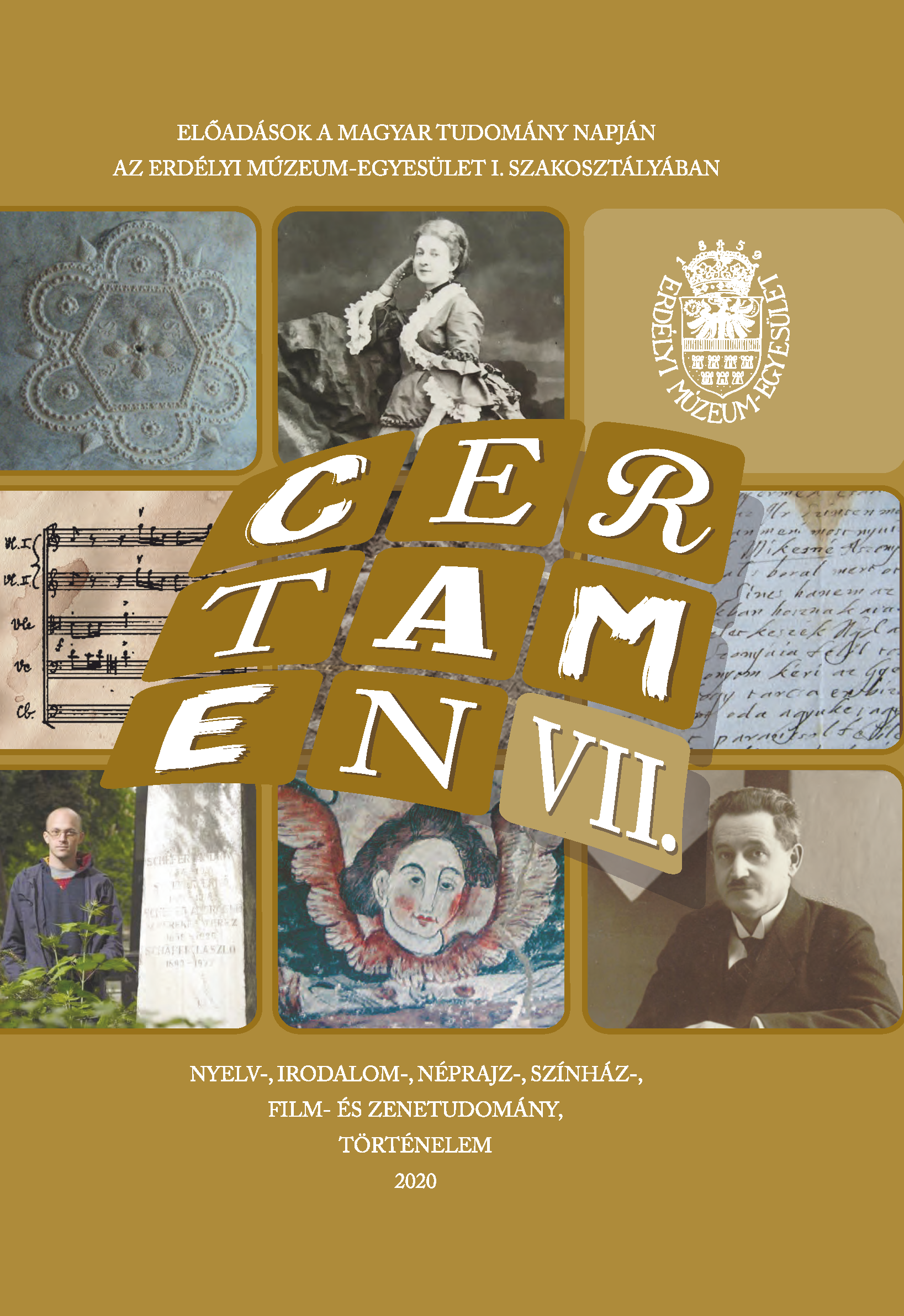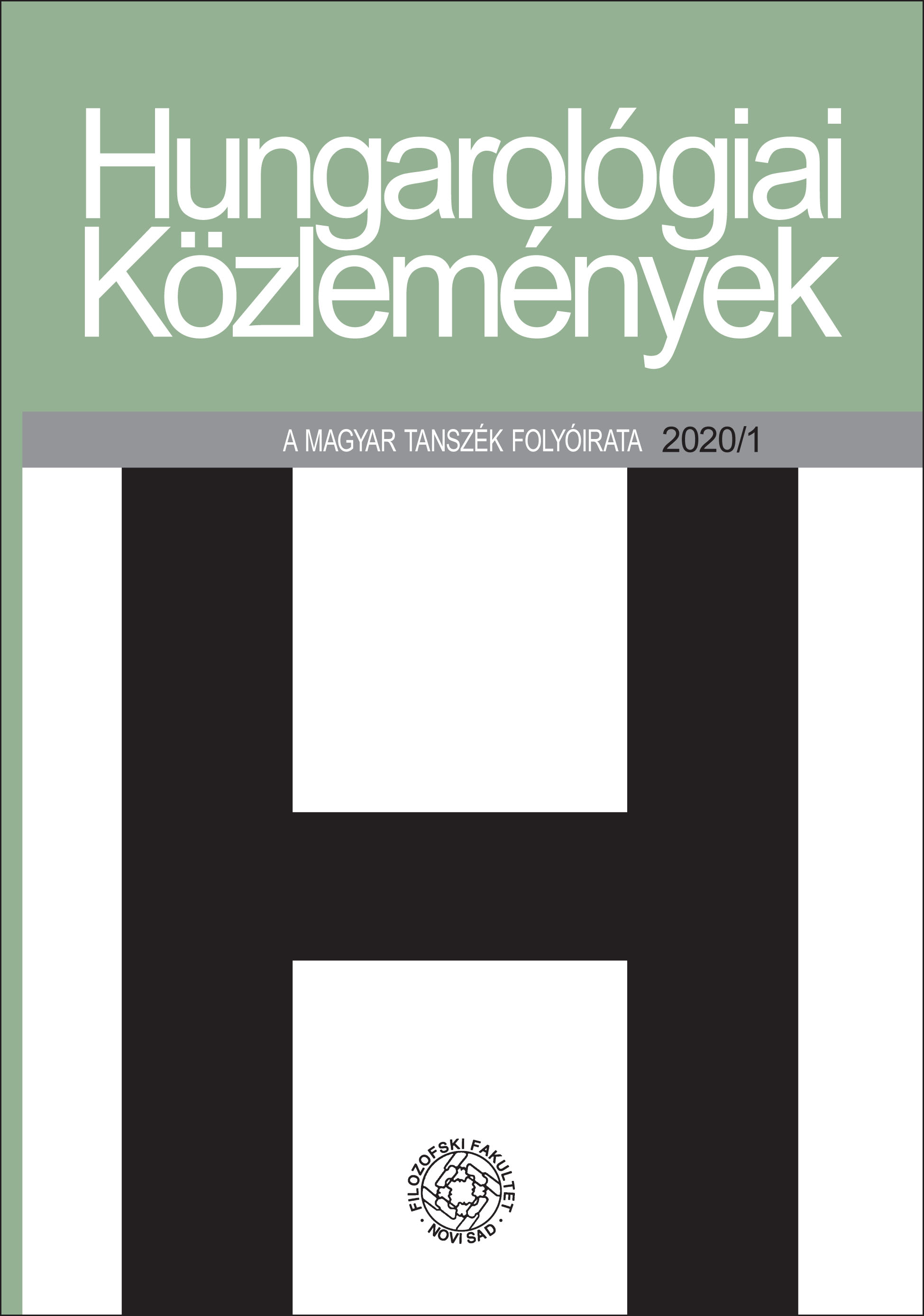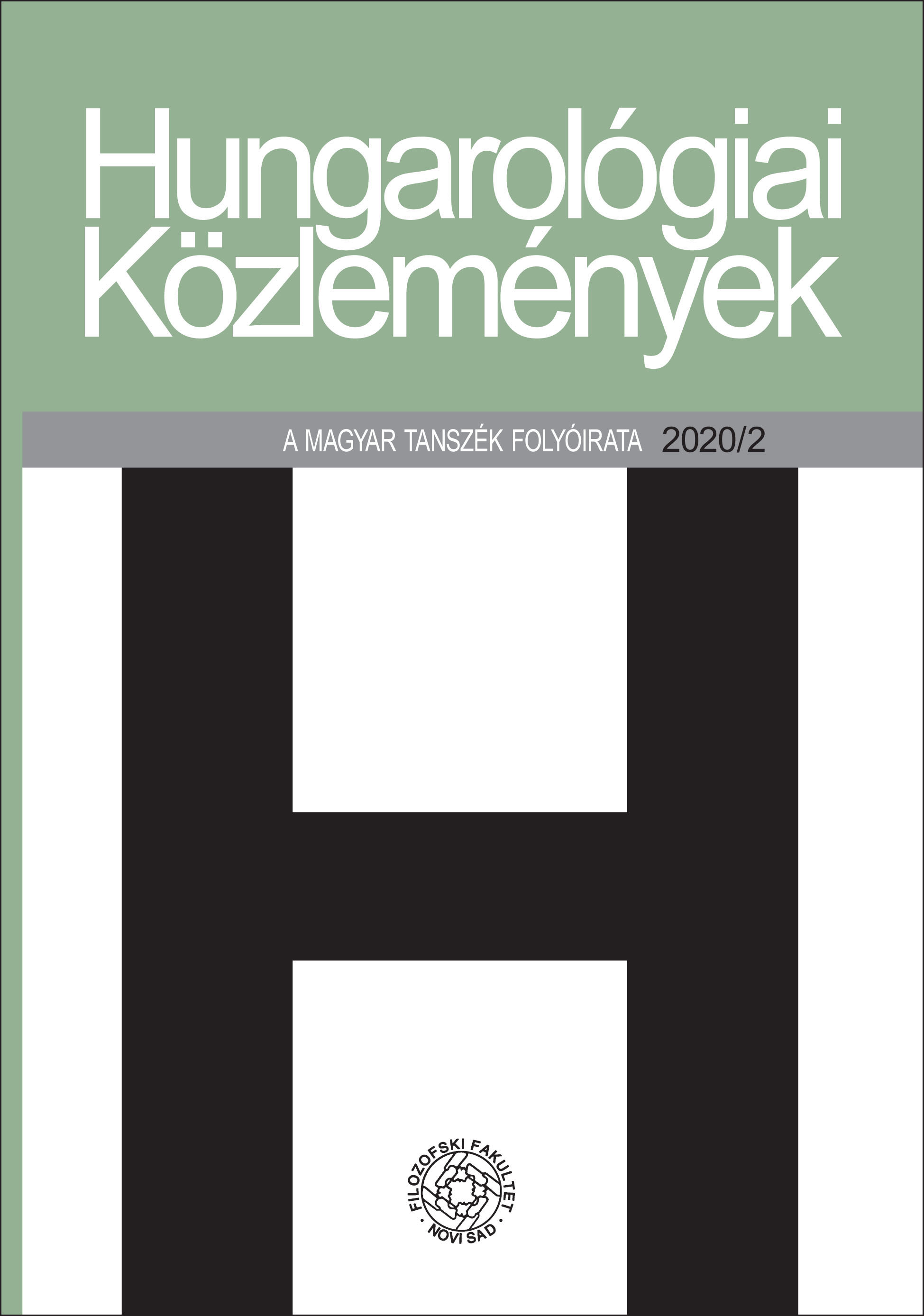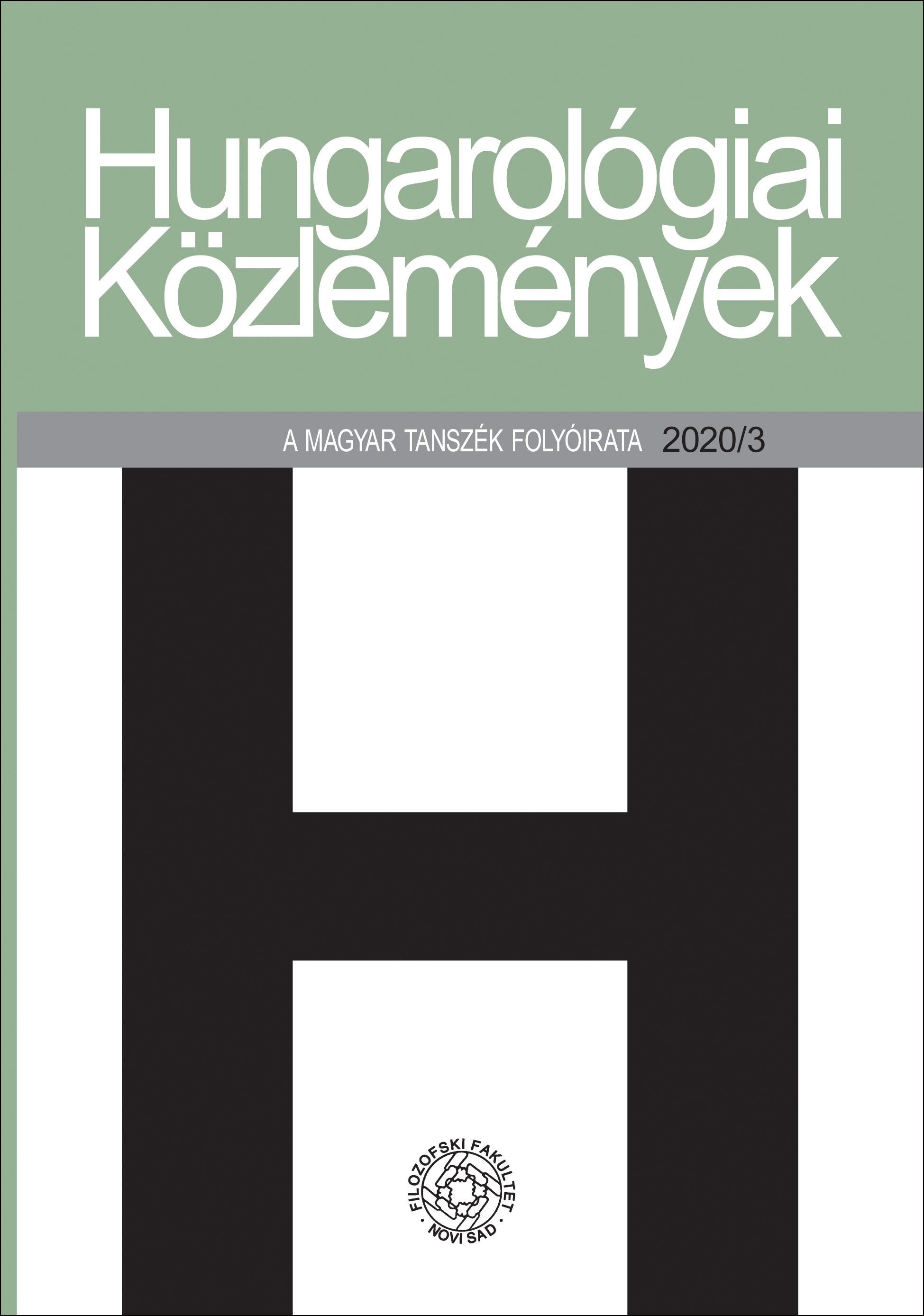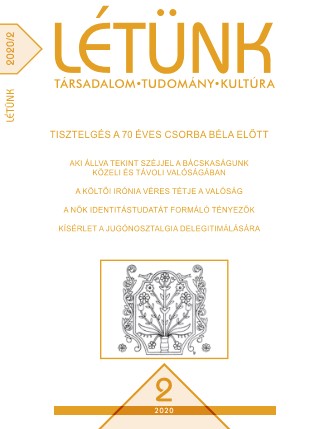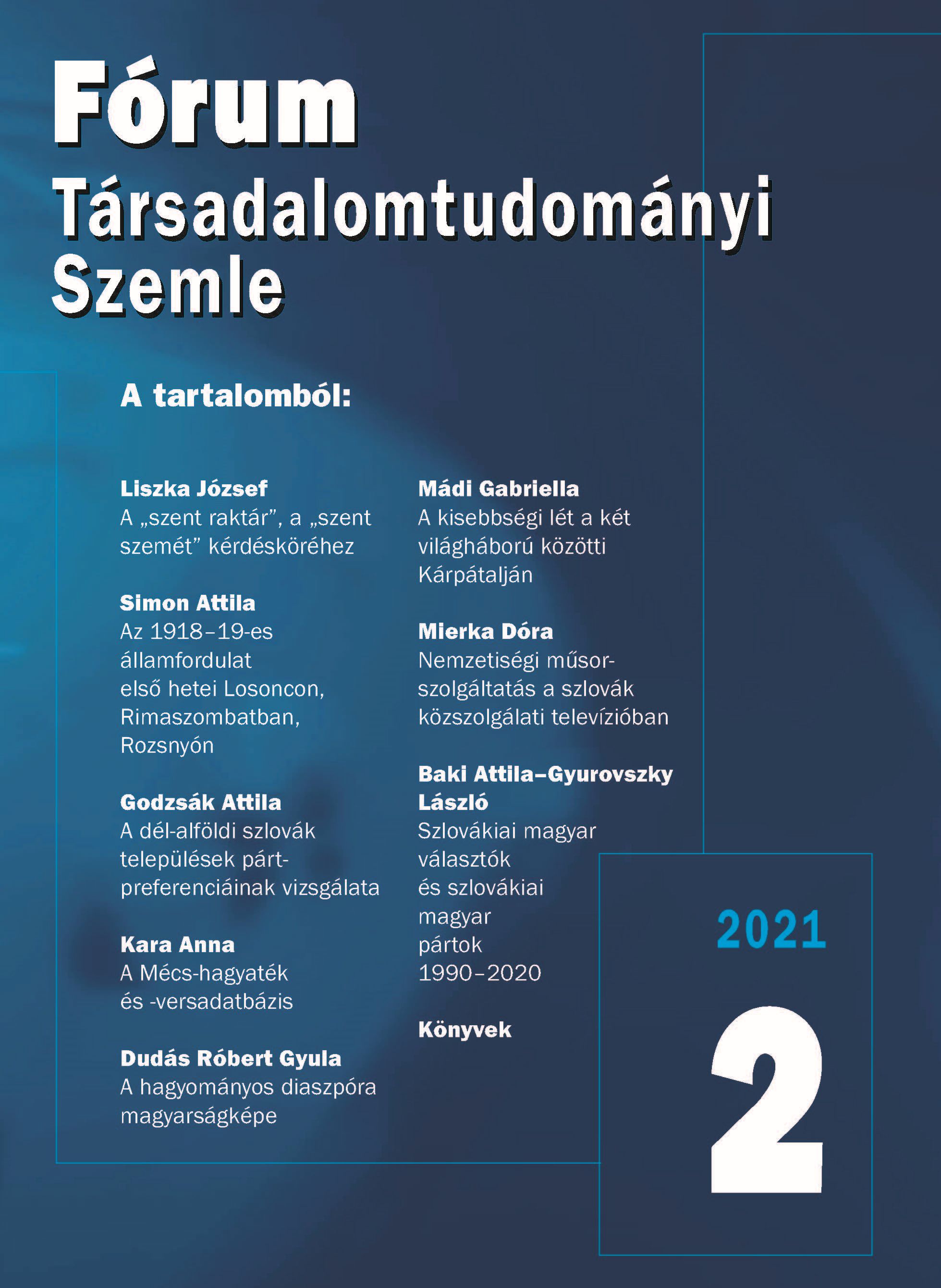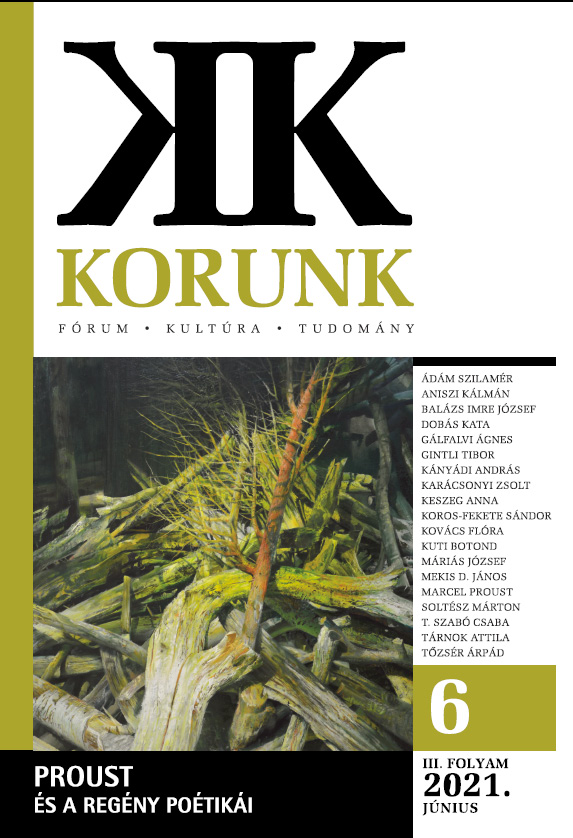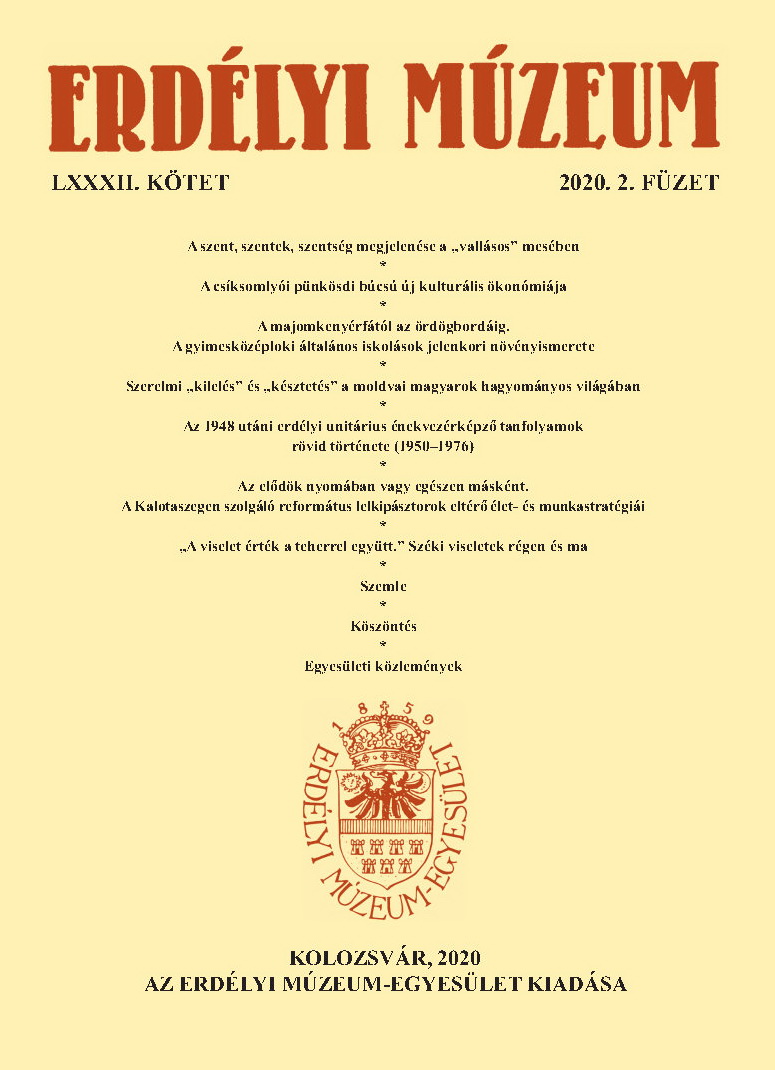
Bari Károly versei és a folklór
The famous Hungarian Gypsy poet and painter, Károly Bari (born 1952 in a tiny Gypsy village in North Hungary) started to publish poetry in Hungarian language from 1966 on. His oeuvre (containing about 30 books and hundreds of articles) is well known also in Europe. For more than twenty years he has collected and published traditional Gypsy folklore in South-East Europe in more than 20 books or CD anthologies. As a poet he has recently published his complete poetic works: A mozdulatlanság örökbefogadása. Összegyűjtött versek, prózai írások és képzőművészeti alkotások 1966—2018 (’Inheriting the Immovable’. Collected poems, prose and paintings – 1966–2019). Kalligram, Budapest, 2019. pp. 359 + 7. My paper deals with Bari’s own poetry (and not with folk songs or popular songs). The works express a very sophisticated written poetics. My analysis follows the grouping of the verses, elaborated by the poet. The key program is to contrast the works by an exceptionally talented poet – who knows well the Gypsy folklore, but his own poetry is absolutely different. Already in 19th century literature, there was a constant debate whether talented peasant persons could reach the aesthetic level of professional poetry. Bari’s poetry is above the limit, and only in a proxy way can we denominate it. Bari’s works prove that exceptionally talented peasants could create the poetry of the highest level.
More...
